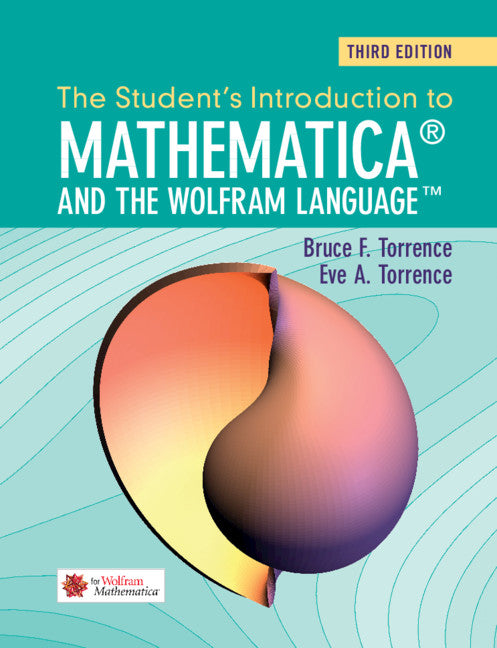Freshly Printed - allow 8 days lead
Couldn't load pickup availability
The Student's Introduction to Mathematica and the Wolfram Language
An introduction to Mathematica® and the Wolfram Language™ in the familiar context of the standard university mathematics curriculum.
Bruce F. Torrence (Author), Eve A. Torrence (Author)
9781108406369, Cambridge University Press
Paperback / softback, published 16 May 2019
544 pages, 480 b/w illus. 250 exercises
24.6 x 18.8 x 2.5 cm, 1.18 kg
'This text, including the exercises and solutions, is written in a student-friendly style … Unlike most tutorial introductions to Mathematica, the authors go to significant lengths to provide explanations and rationales underlying what a newcomer would likely find confusing … I believe that this book would be a useful addition to any student's library in a college or university that uses Mathematica.' Marvin Schaefer, MAA Reviews
The unique feature of this compact student's introduction to Mathematica® and the Wolfram Language™ is that the order of the material closely follows a standard mathematics curriculum. As a result, it provides a brief introduction to those aspects of the Mathematica® software program most useful to students. Used as a supplementary text, it will help bridge the gap between Mathematica® and the mathematics in the course, and will serve as an excellent tutorial for former students. There have been significant changes to Mathematica® since the second edition, and all chapters have now been updated to account for new features in the software, including natural language queries and the vast stores of real-world data that are now integrated through the cloud. This third edition also includes many new exercises and a chapter on 3D printing that showcases the new computational geometry capabilities that will equip readers to print in 3D.
Preface
1. Getting started
2. Working with Mathematica®
3. Functions and their graphs
4. Algebra
5. Calculus
6. Multivariable calculus
7. Linear algebra
8. Programming
9. 3D printing
Index.
Subject Areas: Information technology: general issues [UB], Linear programming [PBUH], Calculus & mathematical analysis [PBK], Algebra [PBF]


